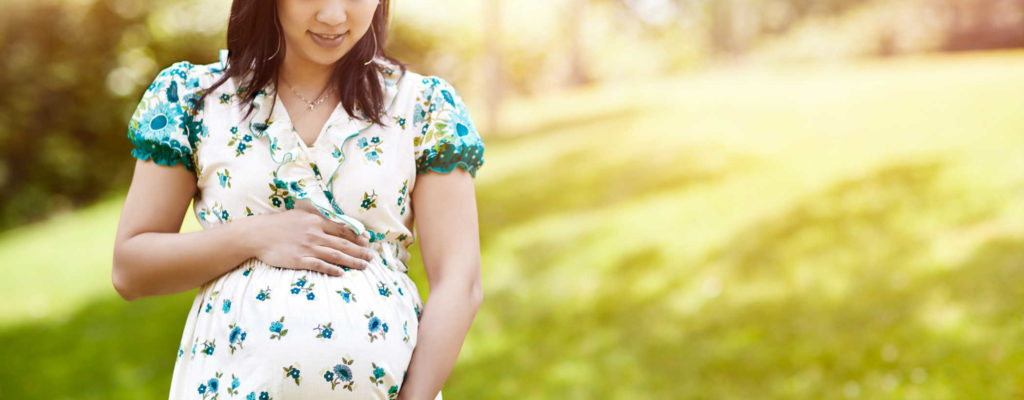
The harmful substances in cigarette smoke pass through the lungs into the mother's bloodstream and come into contact with the fetus. So, smoking any kind of cigarette will adversely affect the pregnant woman and the fetus. Join aFamilyToday Health to find out the unexpected harms of tobacco on the fetus
The cord is the life of the fetus. Blood will then provide oxygen and food to feed the baby. Every cigarette that the mother sucks in will immediately adversely affect the baby: CO (carbon monoxide) displaces oxygen into the bloodstream, resulting in the amount of oxygen the fetus receives through the umbilical cord. will be reduced. The fetus cannot move normally for at least an hour after a woman has smoked.
Smoking affects the placenta and reduces the amount of nutrients provided to the fetus through the placenta. Nicotine in tobacco also reduces the amount of blood flowing through the umbilical cord, making it difficult for the fetus to receive the oxygen and nutrients that the baby needs. In addition, smoking also adversely affects the fetal lungs and brain. To prepare for breathing in the outside world, the fetus has to train chest muscles, but nicotine will impair the baby's breathing movement.
Do not smoke while breastfeeding
Breastfeeding is the best start for your baby. Breast milk provides all the nutrients your baby needs for the first six months and is an important part of your baby's diet for the first year. Breast milk also helps babies strengthen immunity to many different diseases.
If you are breastfeeding, you must break bad habits like smoking and drinking alcohol. If you are smoking, it is best not to breastfeed.
Smoking mothers usually do not have a lot of milk. Babies born to smokers' mothers often have respiratory illnesses that can be prevented through breastfeeding. Stop smoking will help limit nicotine from cigarettes into the baby's body through breast milk and help protect the health of the baby.
If quitting smoking is too difficult, mothers can still apply the following ways to help reduce the harmful effects of tobacco on their babies:
Before you smoke, consider whether tobacco is good for your body or not;
Try not to smoke before or during breastfeeding;
Try not to smoke around your baby - if possible, smoke outside. If you cannot quit smoking immediately, continue working slowly.
How does passive smoking affect the fetus?
Every time you, your spouse or other family members smoke around your baby, your baby will also inhale harmful substances from cigarette smoke into the body. It is indirect smoking or secondhand smoking.
Even though the smoke released into diluted air, it still carries many harmful substances. Children's lungs are usually smaller and more fragile than adults, so babies are more susceptible to it.
Babies and young children who inhale second-hand smoke are often at high risk for many dangerous diseases such as:
SIDS (sudden infant death);
Respiratory diseases such as bronchitis, bronchitis, and pneumonia;
Lung failure;
Cough, phlegm, wheezing, and difficulty breathing;
Asthma symptoms are frequent and worse;
Inflammation of the middle ear causes hearing loss in children;
Meningitis often causes death, cerebral palsy, deafness, and disability.
The more tobacco smoke children inhale, the more likely it is that children will get these diseases. The best way to protect your baby is to stop smoking around your baby and completely prohibit smoking indoors.
Help you quit smoking during pregnancy
Pregnant women should see their doctor, midwife or nurse so that they can create the most effective and scientific quit smoking plan. You can also use nicotine replacement products.
During pregnancy and lactation, mothers should quit smoking without the assistance of drugs. However, if you need the help of drugs, pregnant women can use nicotine replacement products. Although these products are safer than smoking, they still contain a very small amount of nicotine so they still more or less affect the fetus. You should discuss the benefits and harms of these products with your pharmacist or doctor before taking them, and tell your doctor that you are pregnant.
Pregnant and breastfeeding women should not use Zyban (bupropion) and Champix (varenicline) to quit smoking.
If you have any questions related to this issue, you should consult your doctor to answer questions and be promptly examined and treated.
Tips to help you quit smoking
In addition to using assistive methods, you can also do the following tips:
Do exercise;
Gentle exercises like swimming, walking and yoga are good for you and will not harm your baby (however consult your doctor before starting);
If your spouse or family member smokes, encourage them to quit or just smoke outside;
When you want to smoke, immediately find something to do;
Think of the money you save from not buying drugs;
Always remind yourself: don't smoke even a single breath.
If you have a craving for smoking again, try these exercises to calm yourself and stay awake:
Try to delay for a few minutes to let the cravings go away;
Breathe slowly and deeply;
Find work to do: call friends, listen to music or practice exercises to prepare the body for birth;
Rest and take sips of water slowly.
You should quit smoking now to protect the health of not only you but also your baby and loved ones.












